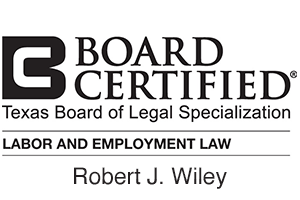in Austin, Texas
Mediation
What Is Mediation?
Mediation is a form of private dispute resolution that is more informal than going to court or arbitration. Though both mediation and arbitration are ways of resolving workplace disputes without involving the courts, they are distinctly different in practice. Arbitration is legally binding and functions almost as a “mini trial” in front of an arbitrator instead of a judge. By contrast, mediation is basically a more structured form of negotiation. Generally, during mediation, both parties meet with a mediator, present their sides of the dispute, and attempt to reach a resolution for the case.
For mediation that takes place prior to a lawsuit being field, the mediator must be agreed to by both parties. While there are some free mediation services, the mediator is generally paid for jointly by the employer and employee. Mediation can take anywhere from half a day to multiple days, and is not binding on the parties unless a settlement is reached. If there is no consensus on how to settle the case, even with the mediator’s input, then either party is free to walk away without settling the case. However, a good mediator will try to keep the parties engaged and working towards a resolution.
Advantages and Disadvantages of Mediation
One notable benefit of mediation is that it allows certainty, as opposed to the risk of trial or arbitration. If a resolution is reached during mediation, both sides know exactly what they are getting and when. The risk of an adverse judgment or exorbitant trial expenses is eliminated by a mediated settlement. Another key advantage is that each party has more input into the ultimate resolution of the case. Parties can ask for (and agree to) relief at mediation that a district court judge or an arbitrator would be unable to or unlikely to grant. Indeed, some mediations have been resolved for things that a court may not order from a party, such as positive references, different reporting structures, or more PTO.
Many mediation participants have found that simply being in the same place as the opposing party, and getting the chance to present their case to a mediator is very helpful in ultimately facilitating a settlement. A mediator does not decide the case on the merits, and mediation does not produce a definitive winner or loser.
Furthermore, the mediation process is confidential by design. Statements and settlement offers made during mediation are generally not subject to discovery or disclosure in court, arbitration, or otherwise. Confidentiality promotes resolution because it allows the parties to engage in a candid assessment of their respective cases and work with the mediator to facilitate the best possible solution without the uncertainty of trial. Therefore, if mediation is unsuccessful both parties must essentially start from scratch in the courts.
How Mediation Works in Practice
Many of our cases that end up in mediation start out as EEOC complaints, and others originate from the court system more generally—in Travis County, some trial courts require the parties to attempt mediation or explain why mediation would not be beneficial before the case can go to trial. This is a common practice in federal court, as well. Mediation can be a very attractive and effective option for both the employer and employee, and many cases that go to mediation are settled once both parties have had the opportunity to present their case. The Austin employment lawyers at Austin Employment Lawyers, P.C. often help settle cases through mediation, and will try to help you achieve your goals through the process as well. If you are engaged in a workplace dispute that is headed for mediation, and would like the assistance of an attorney, you can contact us by filling out our intake form or calling our office at (512) 271-5527.







